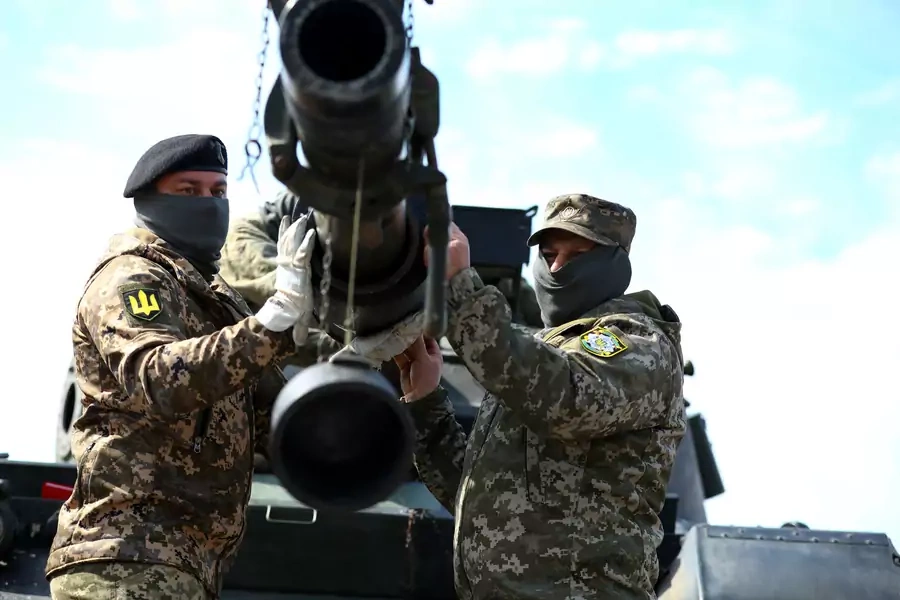The President’s Inbox Recap: U.S. Strategy in Ukraine

The latest episode of The President’s Inbox is live. This week Jim sat down with Charles Kupchan, senior fellow at the Council on Foreign Relations and professor of international affairs at Georgetown University.
U.S. Strategy in Ukraine, With Charles Kupchan
Charles Kupchan, senior fellow at CFR and a professor of international affairs at Georgetown University, sits down with James M. Lindsay to discuss the status of the war in Ukraine and whether it is time for the United States and the West to rethink their strategy.
They discussed the West's strategy in Ukraine and its role in negotiating the end of the war.
Here are three highlights:
More on:
1.) The Ukrainian spring offensive could begin any day now. Charlie argues that Ukraine is waiting for two things before it launches its long-expected counteroffensive. First, Ukraine is trying to stock up on as much armor as possible. Charlie attributes much of Ukraine’s success on the battlefield to the aid it has received from the West. Second, Ukraine is waiting for warmer, dryer weather. Tanks and mud make a poor mix.
2.) Neither Russia nor Ukraine is ready to come to the negotiating table at the moment. The Ukrainian public overwhelmingly supports reclaiming every inch of Ukrainian territory, including Crimea. Putin insists that any peace talks recognize Russia’s claim to Crimea and the Ukrainian oblasts of Donetsk, Kherson, Luhansk and Zaporizhzhia. With neither Ukraine nor Russia willing to budge on these issues, there is little room for negotiations.
3.) Ukraine’s spring offensive could create the conditions to begin negotiations come fall. Charlie is skeptical that Ukraine can defeat Russia on the battlefield. He expects Ukraine to reclaim some territory but at a high cost that makes both sides more receptive to negotiations. That is why Charlie and CFR President Richard Haass have argued that the West should help Ukraine have as successful a spring offensive as possible by giving weapons that it hasn’t received yet like longer-range missiles and F-16s. Then, once the conditions are right, the United States and its allies could try to convince both sides to come to the negotiating table. As Charlie put it, “The logic of our position is let’s give everything that we can to Ukraine now to help it succeed and then begin to try to set the table for a diplomatic end-game once this fighting season begins to wind down.” China and India have already called for negotiations to end the war. Charlie argues that it might be wise for the United States to try to enlist China and India in any negotiating initiative it launches, even if that makes the diplomacy more complex.
Charlie has been consistent in contending that the war in Ukraine will be settled at the negotiating table rather than on the battlefield. Last November, he argued in the New York Times that the United States and the West should be prepared to get involved in ending the war. This past February he wrote in the Quincy Institute’s Responsible Statecraft blog that the United States and its allies “should ready plans for a diplomatic endgame before the fighting stops.”
Charlie has been explicit that his calls for the West to find a way to open a diplomatic track on the Ukraine war stem partly from his assessment that Western resolve is likely to falter in the coming months. Jim is more optimistic about Western solidarity. He and Ivo H. Daalder—president of the Chicago Council on Foreign Affairs and a former U.S. Ambassador to NATO—wrote last fall that “large majorities in Europe and North America understand that their security and freedom depend on Ukraine remaining free, independent, and part of the West. Those are the true stakes of this war. And it is why the West will stand firm.” Either way, barring a decisive victory on the battlefield by either side, which seems unlikely, diplomacy will eventually be needed to end the war.
More on:
If you want to learn more about the War in Ukraine, CFR has an explainer on the conflict. CFR’s In Brief on Ukraine’s ability to hold off Russia is also worth a read.
 Online Store
Online Store
